Villagers - Interview
by Lisa Torem
published: 20 / 3 / 2011
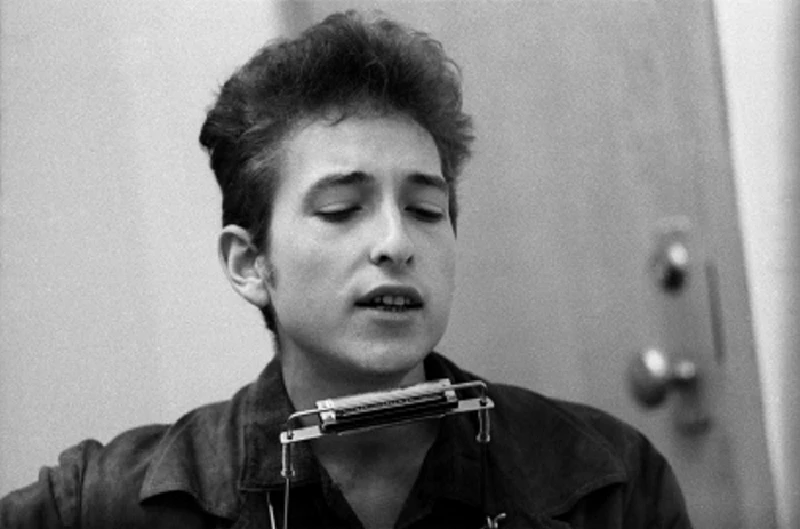
intro
Filmmaker Joel Gilbert has made three documentary films about Bob Dylan, and has also written a book about and has his own tribute band dedicated to the iconic singer-songwriter. Lisa Torem speaks to him about his latest film, 'Dylan Revealed'
Some people are obsessed when it comes to finding the perfect birthday present, but especially one American film director/musician, Joel Gilbert, who is set to release his current documentary film, 'Dylan Revealed', just in time to celebrate the artist's 70th birthday in May. Besides this film, Gilbert’s preoccupation with Dylan’s career has unveiled a multitude of additional “unbirthday” projects. He also wrote and directed 'Bob Dylan, Never Ending Tour Diaries: Drummer Winston Watson’s Incredible Journey' two years ago,and the year before that 'Inside Bob Dylan’s Jesus Years: Busy Being Born Again!' in 2008. He published as well a Dylan book, 'The Acoustic Bob Dylan: His Musical Styles and Guitar Techniques', in 1991, and he fronts his own tribute band, Highway 61 Revisited, which has toured internationally and at American prisons and includes in its line-up touring mates from actual Dylan concerts. The new film is jam-packed with astute observations by luminaries such as producer Jerry Wexler, guitarist Jack Elliott, violinist Scarlet Rivera and photographer Barry Feinstein. Scenes unfold which show the younger minstrel bombarded with inane questions by clueless reporters, onstage religious epitaphs and ruminating admirable political convictions as he organizes concerts for Rubin “Hurricane” Carter, a former boxer, who alleges he was wrongly convicted of a crime he did not commit. Gilbert fascinates fans with remembrances of Dylan’s controversial electric tour in 1966, his comeback tour in 1974 and the 1975/1976 Rolling Thunder revue. One segment shows the wildly enthusiastic and articulate drummer, Winston Watson, whose grin escalates behind the lens, as he recounts the time he was asked to join 'The Never Ending Band' touring engagement. The University of London and the London School of Economics graduate also provides music for his soundtracks and appears on camera as an actual interviewer. In addition, he acts as a foreign policy consultant on national air waves and TV. Gilbert describes his process for creating nuance on film and fleshing out meaningful, visual stories to Pennyblackmusic. Save some sympathy, however, for the troubadour, himself. Blowing out seventy candles is truly a tough act to follow. PB: Joel, what made you become a film director; a certain experience, a singular film? JG: The first film I produced, 'Bob Dylan 1966 World Tour: The Home Movies' was very successful. It resulted in a distribution deal immediately. The distributor asked for another, then another, and that’s how it all began. PB: You perform with a Dylan tribute band along with many of the performers who have toured with Dylan and appear on your current film, 'Bob Dylan Revealed'. You have created four other major film projects detailing Dylan’s concert tours. Are you Dylan obsessed? JG: As a documentarian investigating Dylan’s life history, I realized that each of Dylan’s “incarnations”, like the 1966 Electric Tour, The 1974 Tour, the Rolling Thunder Revue, the Gospel Years, and the Never Ending Tour, were each fascinating and complex. They needed a film in their own right. Each time period necessitated an in depth look. Gathering the band members happened in reverse. After interviewing a Dylan band member for a documentary, I asked them, “How would you like to play with my band?” The rest is history, as they say. PB: What sets this new film apart? JG: 'Bob Dylan Revealed” is a complete career insider perspective of Bob Dylan from 1962 to the present. It contains interviews and never-before-seen footage and photographs spanning Dylan’s fifty year life and musical journey. After viewing the film, you will understand Bob Dylan and his music and appreciate both a great deal more, and for completely different reasons. PB: “Give the anarchist a cigarette,” was a quip uttered by Dylan in the final scene of director D.A. Pennebaker’s ’67 film, 'Don’t Look Back'. The songwriter was responding to what he considered negative press in 1967, after he was referred to as “an anarchist.” Are there memorable comments stated in 'Bob Dylan Revealed' by either Bob or his colleagues that might generate a similar buzz, decades afterwards? JG: There are too many memorable statements to mention. One of my favourites is from an interview Dylan gave to KDKA in 1981 during his Gospel Tour, when everyone was demanding the “old songs.” Dylan told a reporter, “The old stuff is not going to save ‘em, and I’m not going to save ‘em.” PB: A few shots taken during Dylan’s early career show him looking uncomfortable as the press bombards him with direct, rude questions. How do you feel about his relationship with the press? Were “they” out to get him? JG: Bob Dylan’s relationship with the press can be characterized by interviewers’ unpreparedness.It’s been like that from the very beginning, and continues to this day. Essentially, if you ask a silly question, you’ll get a silly answer.One can recall Ed Bradley on 60 Minutes asking Bob Dylan, “What’s it like to be Bob Dylan?” Dylan should have answered, “What’s it like to have a gig on 60 Minutes and not prepare for your interview?” I do my homework, as you can see in 'Bob Dylan Revealed'. PB: Did Dylan initially react well to your interest in capturing his personal moments on film? JG: I mostly dealt with Dylan’s management, who apparently intended for some 10 years, without success, to make a Bob Dylan documentary of their own. I was told through personal sources that Bob Dylan appreciated my films. But, I knew his management was disappointed I beat them to the punch. They eventually dumped all their footage on Martin Scorsese, who produced 'No Direction Home'. Though this film included some historic footage, unfortunately it had nothing revelatory or new because it was an “official” film. PB: Given today’s commercial trends, do you believe that Bob Dylan, starting out now, would have the “X factor”? JG: Despite the huge changes in the music industry, if Bob Dylan arrived today, I believe his charisma and talent to write songs about reality would make him equally successful. PB: Dylan went though a phase where he discovered Christianity and devoted multiple albums to this quest. Jerry Wexler was asked to produce 'Slow Train Coming', which he describes as “song after song about the scripture.” Wexler admits in the film to both being surprised to be asked (he is non-Christian), but also enthusiastic. There are other events in the film that show an impassioned artist “finding himself” and sharing his bounty with the audience; even though he is often misunderstood or criticized. As Dylan nears 70, do you think he has finally found himself, artistically and spiritually, or do you think his quest has simply become less important? JG: By definition, a true artist is never “found”. Whenever Bob Dylan finds himself, artistically and/or spiritually, he moves right along seeking other such experiences to stimulate his art. He is a true seeker who has spent more time in a spiritual and artistic abyss than not. More lost than found. PB: Much of the film’s point-of-view is told through first-person narrative. How did you choose the participants? JG: I chose people who were most relevant to each time period, adding insight from their perspective as a major participating figure at that time. Two of the most interesting interviews were exclusive and first time ever. Bill Dwyer, Bob Dylan’s Bible class teacher from the Vineyard Christian Fellowship Church, and boxer Rubin “Hurricane” Carter, discussing the murders in Patterson, New Jersey for the first time since his trials. Ramblin’ Jack Elliott is also another wonderful exclusive interview. PB: Violinist Scarlet Rivera participated in the 1976 Dylan album 'Desire'. She hints that the recording sessions lacked leadership, yet claims that Dylan’s role in dealing with his counterparts is very “intuitive.” Bassist Rob Stoner suggested the initial sessions were characterized by “chaos.” Yet, most artists agreed that Dylan’s “hands-off” policy allowed for a great deal of artistic freedom. What was your take on Dylan, the recording artist, as opposed to the live performer? JG: Dylan is a live performer, as opposed to a recording artist. He requires interaction with the audience, and their reactions to fuel his artistic juices. The studio environment is harsh and boring for Dylan, hence his distaste for the medium. PB: 1966 World Tour drummer Mickey Jones is an important contributor to the film. He says, “He was like a caged animal. He couldn’t wait to plug that black Telecaster in.” Jones was referring to Dylan’s desire to play electric guitar during that concert. He adds that, during the acoustic set the audience “hung on every word.” The electric set, however, was “booed.”Do you feel the disgruntled fans had a valid point or do audiences keep artists from expanding? JG: The booing during the 1966 Bob Dylan World Tour was a reflection of fans’ feelings about Bob Dylan’s acoustic music. For them, Bob Dylan was the “acoustic God”. Having written seminal songs of the protest movement such as 'The Times They Are A Changin’ and 'Blowing in the Wind', they were not ready for an image change of who Bob Dylan was, even though he had moved on. Certainly Bob Dylan did not let their feelings restrict his artistic development. Nor has he ever done so. The most obvious example was his foray into evangelical Christianity where he went against all marketing logic and completely alienated his fan base. PB: Another drummer, Winston Watson, who participated in the 'Never Ending Tour' and has performed more than 400 shows with Dylan, says, “He’s forgotten more songs than most people have written in a lifetime.” Watson, who was also the subject of one of your previous works, took great delight in imitating Bob and providing some invaluable anecdotes. Was there a particular reason, though, that you felt “the drummer” has more valuable insights than another instrumentalist? JG: First of all, drummers are different cats. They are great subjects for interviews because they love to talk and tell stories. They tend to be very outgoing, gregarious people, and enjoy being the centre of attention. In fact most drummers become drummers because as children they banged on things to get attention. Guitar players are much more difficult subjects to interview. Keyboard players usually have very little to say, and have to be coaxed, while bass players are a mixed bag. PB: Former boxer Rubin “Hurricane” Carter is also a pivotal force in the film. When Dylan found out that he was incarcerated for a crime that he believed he did not commit, he organized fund-raisers to support the cause. He performed in the actual prison setting, too, which was quite unusual at the time. Was Carter initially anxious to discuss his relationship with Dylan? Did you find their relationship intriguing? JG: Rubin Carter was happy to discuss his case and his interactions with Bob Dylan. Carter actually attended a performance of my band the night before the interview, at BB Kings Blues Club in New York City. Of course, I invited him onto the stage and we serenaded him with 'Hurricane'. He paid me a big complement, he said, “Joel, I never understood the words to that song until I heard you guys sing it last night.” Of course, he was joking. The relationship between Rubin Carter and Bob Dylan was one of mutual use and benefit. Bob Dylan needed a song about a cause to reinvigorate his audience and his relevance. If you look at Dylan’s albums up to that time, he had gone a far distance from whatever crucible had inspired his early writing about civil rights and social change. Reporter Joel Selvin points out that Dylan’s writing reached a low with the song 'If Dogs Run Free' on Dylan’s Self Portrait album. Meanwhile Rubin Carter needed celebrities to help advance his cause in seeking a new trial. You can tell from the film that Rubin Carter is so charismatic, he essentially was able to talk his way out of prison - and Dylan helped him to do so by echoing Carter’s version of the events at the Lafayette Bar and Grill in Patterson, New Jersey where four people were murdered. PB: Why did you choose to not actually have recorded Dylan music in the film or to touch on his romantic life? JG: Using recorded Dylan music is costly and completely unnecessary. I was able to re-create the instrumentals of the Bob Dylan songs using my band, which includes former Bob Dylan band members. In fact, my film soundtracks sound like outtakes from Bob Dylan albums! I have mastered this technique, along with my composer Wayne Peet.and continued the concept for another of my recent films, 'Paul McCartney Really Is Dead: The Last Testament of George Harrison', which came out in 2010 and where by we created instrumentation to mimic Beatles’ songs, using the same sounds, instruments, and production techniques. You literally can’t tell the difference! PB: Can you discuss the process required to write, direct and edit a film? JG: First one needs a great idea and a marketing concept to help sell the film. And, preferably have a distributor as I do, Music Video Distributors. My films are also carried by Warner Brother’s Digital Distribution for Video-On-Demand nationwide and Canada, so they are available in 100 million homes. Be familiar with the film concept and how it will be marketed, then make it happen. The research and writing is the pre-production phase of a documentary. This can take a few months. Shooting the interviews and doing the voiceover work shouldn’t take more than a few weeks. The music soundtrack is created simultaneously, while researchers are finding historic footage from film and photos libraries. Then the editing process starts. This takes a few months and voila! The film is ready.On to the next one! PB: Was researching 'Paul McCartney Really Is Dead' as rewarding as researching Dylan? JG: I’ve enjoyed immensely researching every film. I like to say I embark on getting a PhD in any subject before beginning a film. The fun and fascinating Paul-Is-Dead film can be found at www.paulreallyisdead.com, the official film website. PB: Will you consider exploring Paul McCartney’s living moments at some point? JG: It depends on which Paul McCartney we are talking about… PB: What’s next in your career? JG: I’m working on another film of the new genre I’ve created with the McCartney film, I call it a 'Rock-U-Mystery'. I also have two political documentaries in pre-production. Stay tuned! PB: Thank you. The photographs that accompany this article were taken by Barry Feinstein www.barryfeinsteinphotography.com
Picture Gallery:-
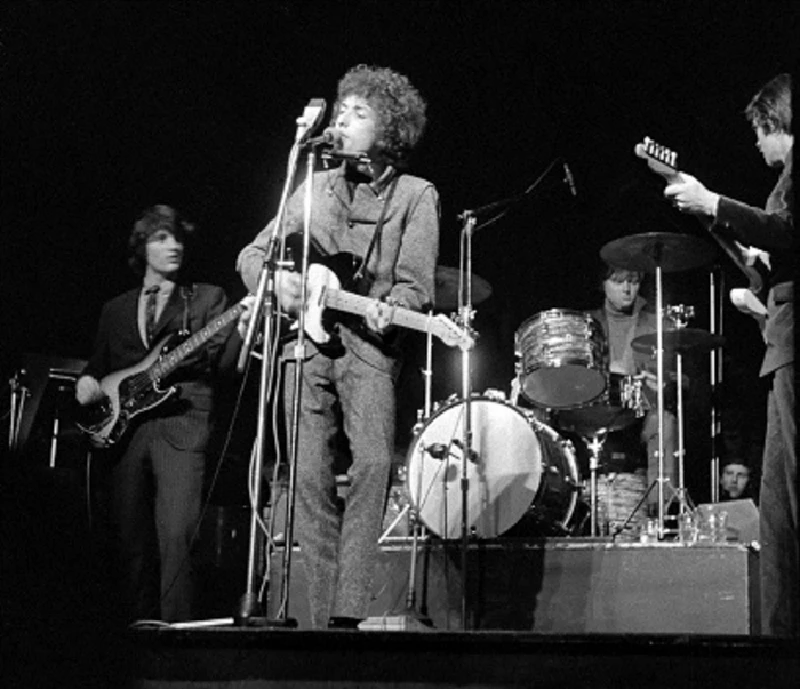
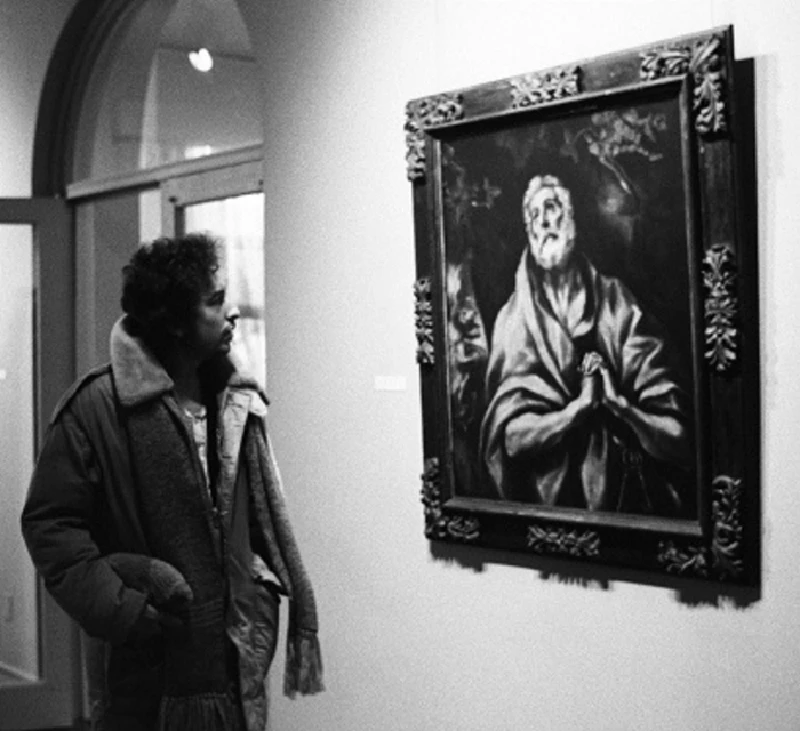
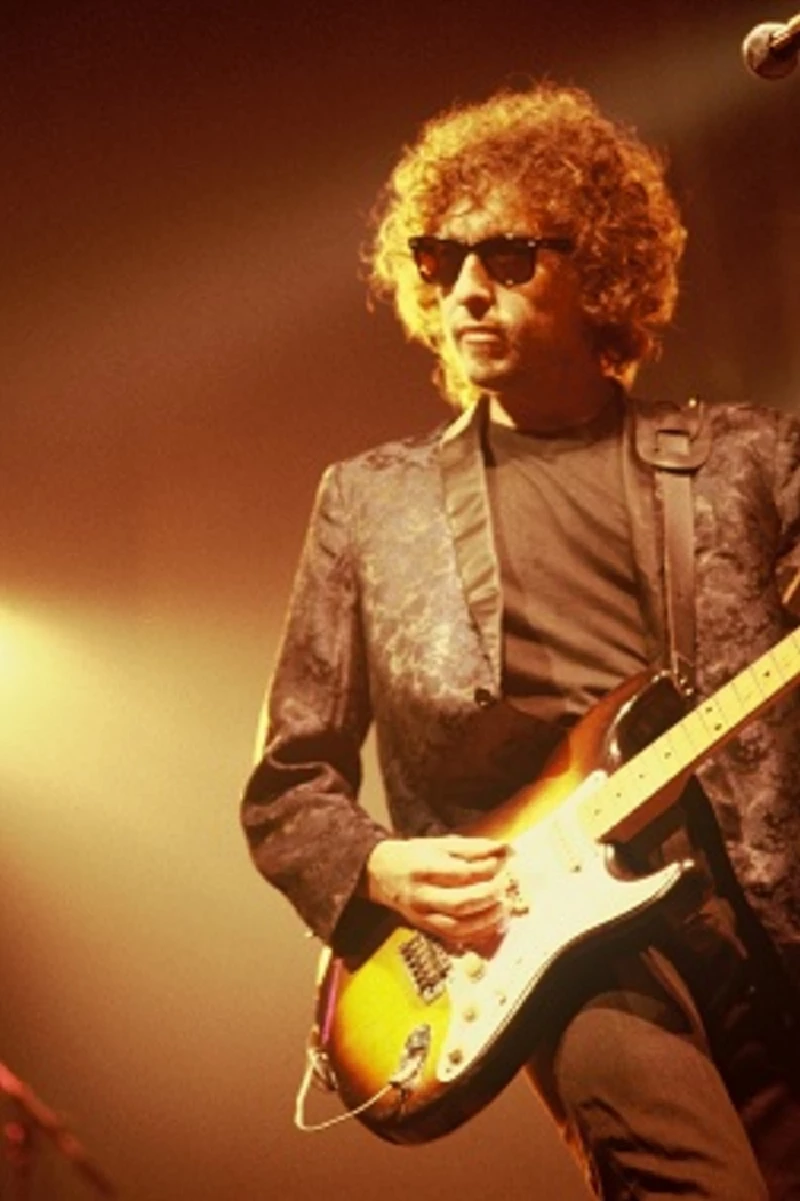
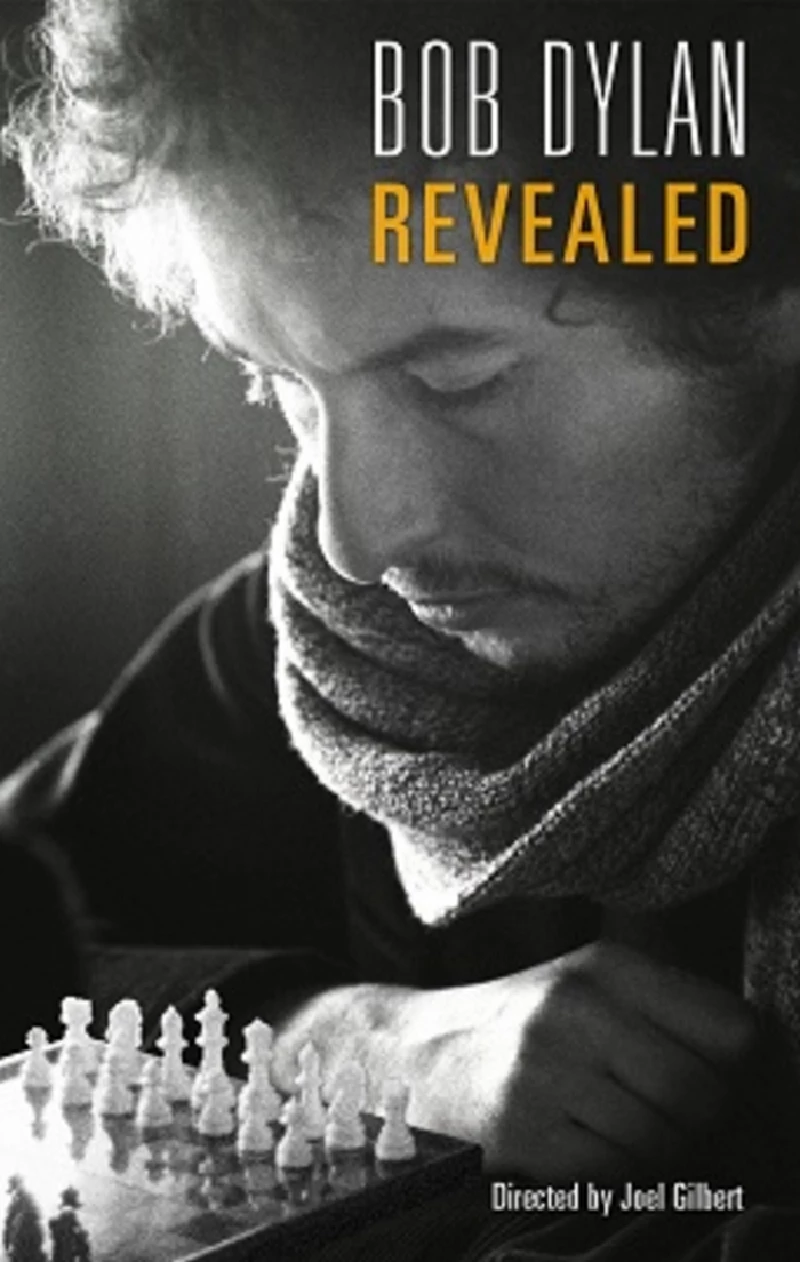
live reviews |
|
Scala, London, 5/10/2010 |
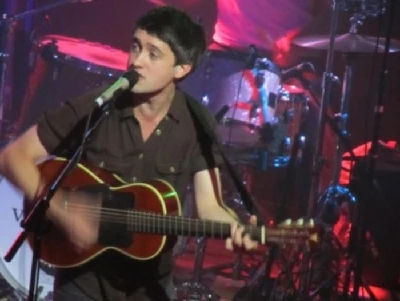
|
| At the Scala in London, Paul Waller watches recent Mercury Prize nominees Villagers play a triumphant set |
| Deaf Institute, Manchester, 25/5/2010 |
| Shepherds Bush Empire, London, 25/3/2010 |
reviews |
|
Becoming a Jackal (2010) |
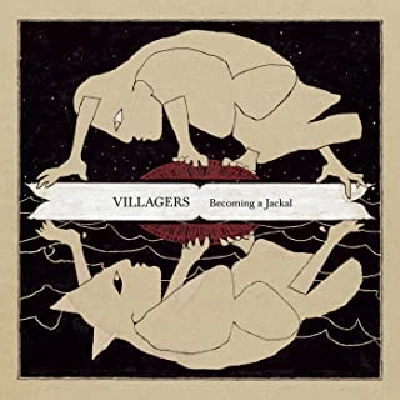
|
| Extraordinary and dizzying pop on stunning debut album from Irish act, Villagers |
most viewed articles
current edition
Carl Ewens - David Bowie 1964 to 1982 On Track: Every Album, Every SongJohn McKay - Interview
Editorial - July 2025
Billie Eilish - O2 Arena, London, 10/7/2025
Visor Fest - Valencia, Spain, 26/9/2025...27/9/2025
Hothouse Flowers - Photoscapes
Bathers - Photoscapes 2
Bathers - Photoscapes 1
Colin Blunstone - Thalia Hall, Chicago, 16/7/2025
Cleo Laine - 1927-2025
previous editions
Heavenly - P.U.N.K. Girl EPBeautiful South - Ten Songs That Made Me Love...
Trudie Myerscough-Harris - Interview
Pixies - Ten Songs That Made Me Love...
Boomtown Rats - Ten Songs That Made Me Love....
Fall - Hex Enduction Hour
Sam Brown - Interview Part 2
Doris Brendel - Interview
Blues and Gospel Train - Manchester, 7th May 1964
Donovan - Ten Songs That Made Me Love...
most viewed reviews
current edition
Sick Man of Europe - The Sick Man of EuropeAmy Macdonald - Is This What You've Been Waiting For?
Phew, Erika Kobayashi,, Dieter Moebius - Radium Girls
Alice Cooper - The Revenge of Alice Cooper
Blueboy - 2
Lucy Spraggan - Other Sides of the Moon
Cynthia Erivo - I Forgive You
Davey Woodward - Mumbo in the Jumbo
Philip Jeays - Victoria
Bush - I Beat Loneliness
Pennyblackmusic Regular Contributors
Adrian Janes
Amanda J. Window
Andrew Twambley
Anthony Dhanendran
Benjamin Howarth
Cila Warncke
Daniel Cressey
Darren Aston
Dastardly
Dave Goodwin
Denzil Watson
Dominic B. Simpson
Eoghan Lyng
Fiona Hutchings
Harry Sherriff
Helen Tipping
Jamie Rowland
John Clarkson
Julie Cruickshank
Kimberly Bright
Lisa Torem
Maarten Schiethart